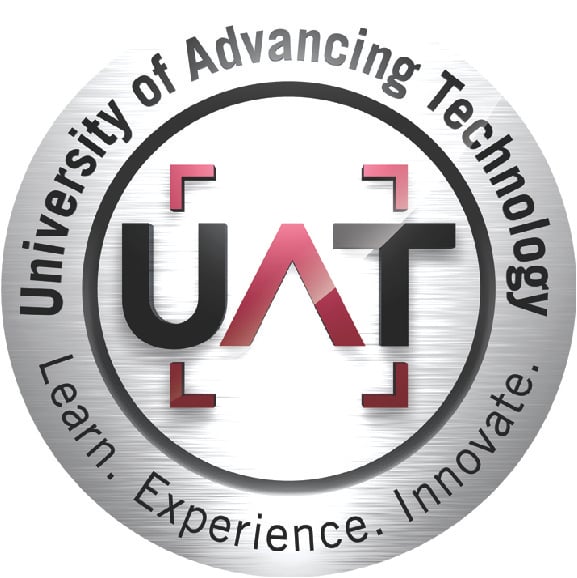Is a College Degree Worth It?
Enrollment in postsecondary institutions is projected to increase steadily well into 2028, with more individuals seeking the benefits of having a college degree.
But these projections don’t always mean earning a college degree is the right path for everyone. There are many factors to consider – such as cost and earning potential – when deciding whether going to college is worth it.
In this guide, we contrast college degree costs with starting salaries, job prospects, and more to help you decide whether a college degree is worth it to YOU.
What is a College Degree Worth?
When most people ask the question “Is a college degree worth it?”, what they really want to know is if the payoff is worth incurring student loan debt and/or the costs associated with going to college. In other words, will there be a tangible return on investment?
For many, earning a college degree is a requirement for entering their chosen field and is, therefore, a no-brainer. For others, it might be possible to obtain experience for free or at a lower cost (internship, apprenticeship, etc.) and still start off with a great salary.
Below, we cover the many factors you will need to consider and walk you through how to decide what’s best for you.
Average College Degree Costs
The average cost of college in the United States is $35,720 per student, per year. This cost has tripled in the past 20 years and has been on a steady incline.
For in-state students, the average annual cost for a 4-year public university is $25,615. The average cost for a 4-year private university is even higher, at $53,949 per year.
If you are gawking at these costs, just know that there may be alternatives available. An associate’s (2-year) degree costs about $3,570 on average, and there are countless internships, online courses, and trade schools that may prepare you for your career (depending on the field).
College Affordability Calculation
NerdWallet – an online resource for money management and all things student loans – recommends that students do not take on student loans that consume more than 10% of their take-home pay.
This affordability formula is based on:
- Your expected first year salary
- The loan interest rate
- The loan term
You can use NerdWallet’s Student Loan Affordability Calculator to determine whether the cost of going to college will be worth it based on your projected starting salary.
Top College Degrees in the US
University of Advancing Technology recently compiled a list of best college majors based on each field’s job prospects, alumni salaries, and popularity.
This list is not exhaustive, but the top college degrees in the US include:
- Computer Science
- Software Engineering
- Communications
- Nursing
- Business Technology
- Business Administration
- Dentistry
- Game Design & Programming
- Robotics
- Psychology
- Accounting
- Cyber Security
While earning potential is an important consideration in deciding whether college is right for you, we also encourage you to pursue a subject that’s of interest to you, as passion can often be a significant driver of success.
Job Prospects for College Graduates
The National Association of Colleges and Employers recently reported that post-college hiring is projected to rise 7.2% for the class of 2021 (compared to the class of 2020). This rebound suggests new-found optimism on the part of employers post COVID-19, as companies are desperate for qualified candidates and those eager to work.

Average Earning Potential
Entry level salaries can range, but typically technology-based salaries, even at entry level are much higher than the national average. Nearly 1 in 5 college graduates can expect to earn almost double the typical entry-level salary at their first job, post-college. And this expectation isn’t far from the reality for most STEM majors. You can research the most accurate entry-level and median salary information for your field of interest on various industry sites, including the US Bureau of Labor Statistics.
Of course, average starting salaries vary widely depending on the field and level of college degree. Go to ZipRecruiter.com as a great resource where you can look up the average starting salary for your desired field in your state.
Pros vs Cons of Earning a College Degree
There are costs and benefits to earning a college degree. These vary widely depending on the degree, the field, and the job prospects for that field.
It’s important to discuss these pros and cons with an academic advisor so you have all of the relevant information for your chosen major.
Here are the pros and cons of earning a general college degree:
Pros of Earning a Degree:
- Higher earning potential
- Live the college experience
- Network with other students, teachers, and professionals
- Tap into the college’s resources
- Train for a specialized career
- Increase marketability
- Qualify for internships
- Prepare for employer-offered benefits
- Increased job security
Cons of Earning a Degree:
- High-paying jobs aren't guaranteed
- Potential of graduating with student loan debt
- It may take 4+ years to graduate
Earn a College Degree in 3 Years or Less
One of the biggest downsides of most college degrees is that they take 4 years (or more) to complete. This means 4 years of paying out of pocket, applying for grants, or taking out student loans. Fortunately, there may be a better solution.
At UAT, we offer year-round courses that allows students in Science, Technology, Engineering, and Mathematics (STEM) fields to complete a degree in 2.8 years. Fewer years in college means less student loan debt and more time building income, which then means a higher return on your investment.
5 Reasons Why a College Degree is Worth It
In summary, there are 5 primary reasons why earning a college degree is worth it.
These are the key benefits we’ve identified after years of working with students, providing degrees for the most competitive of STEM fields, and helping college grads with job placement.
The top 5 reasons you should get a college degree include:
1. Higher Earning Potential
College graduates earn more, on average, than those who do not have a college degree. In fact, the median salary for someone with a bachelor’s degree is more than twice as high as for someone with only a high school diploma or GED. It is also 45% higher compared to those with an associate degree.
2. Many Jobs REQUIRE a College Degree
Thirty-five percent of job openings require at least a bachelor’s degree and 30% require at least some college or an associate’s degree. If you are wanting to land a job in a competitive field, obtaining a college degree may be a necessity.
3. Open the Door to Networking and Job Opportunities
College is not simply a place for institutions to churn out diplomas. The great ones mold you into being a more well-rounded individual, prepare you to enter the workforce, and set you up with career skills and confidence. Most colleges provide career counseling, campus jobs, internships, job fairs, and more to help set you up for success.
4. Learn a Marketable Skill
Just like college is an investment, hiring managers are investing in YOU to generate a return for their company. That means having a marketable skill is especially attractive to today’s employers. A college degree could put you ahead of the pack while equipping you with a range of skills that make you appealing to top-tier companies.
5. Expand Your Interests
College also presents many opportunities to try new things, expand your horizons, and acquire diverse experience. You can try different electives, join clubs, drop into lectures, and more until you are super confident in what area you want to pursue. Plus, you will be learning from some of the brightest minds in the field!
Earn a Marketable College Degree at UAT
UAT offers a range of degree options for those interested in Science, Technology, Engineering, and Mathematics. Our Computer Science program is highly sought after and helps prepare our students to enter the workforce with confidence.
University of Advancing Technology students have access to many career resources including internships, networking and mentorships, access to professional organizations and interview coaching. Because we believe in life-long learning.
Students learn more efficiently in smaller classes with professors who know each student’s strengths and nurture their development. They often graduate earlier and earn their way sooner. Because we believe in life-long learning, alumni are welcome to audit classes online or on campus for life. Your investment in an education at UAT is an investment in a lifetime of education.
Is a college degree right for you? Request More Information today.






Comment